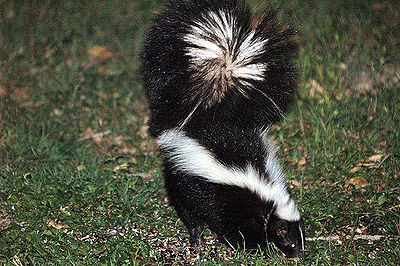
The Center for Disease Control and Prevention (CDC) tells us that the rabies virus can be transmitted to all mammals, humans too.
Some mammals are carriers of the rabies virus and are referred to as reservoirs. Commonly, raccoons, foxes, coyotes, skunks and some species of bats are reservoirs but can also be infected by the disease.
People with exotic pets often vaccinate them against rabies. While the vaccine is known to be effective for dogs, cats and ferrets, it is unknown whether the vaccine works for other mammals.
Please be aware that it is a very rare occurrence for indoor only pets to be exposed to the virus. The disease is transmitted through the bite of a reservoir or rabid animal. Unless you live in an area where wild animals live nearby and your pets are outdoors daily, exposure is extremely rare. However, that does not mean you do not have to vaccinate your pet against rabies.
What Sould You Do?
Check your local laws or with your veterinarian for current vaccine schedules for your dog, cat or ferret. Even if chances are slim for your pet to ever come in contact with a rabid animal, vaccination is required by law. This is to make sure the virus does not spread and affect other pets as well as humans. Consult your vet as to whether or not to vaccinate your exotic pet.
Related Articles:
- Should You Adopt an Exotic Pet?
- Choosing a Vet for Your Exotic Pet
- The Exotic Pet Industry and Animal Welfare
- General Exotic Pet Articles



